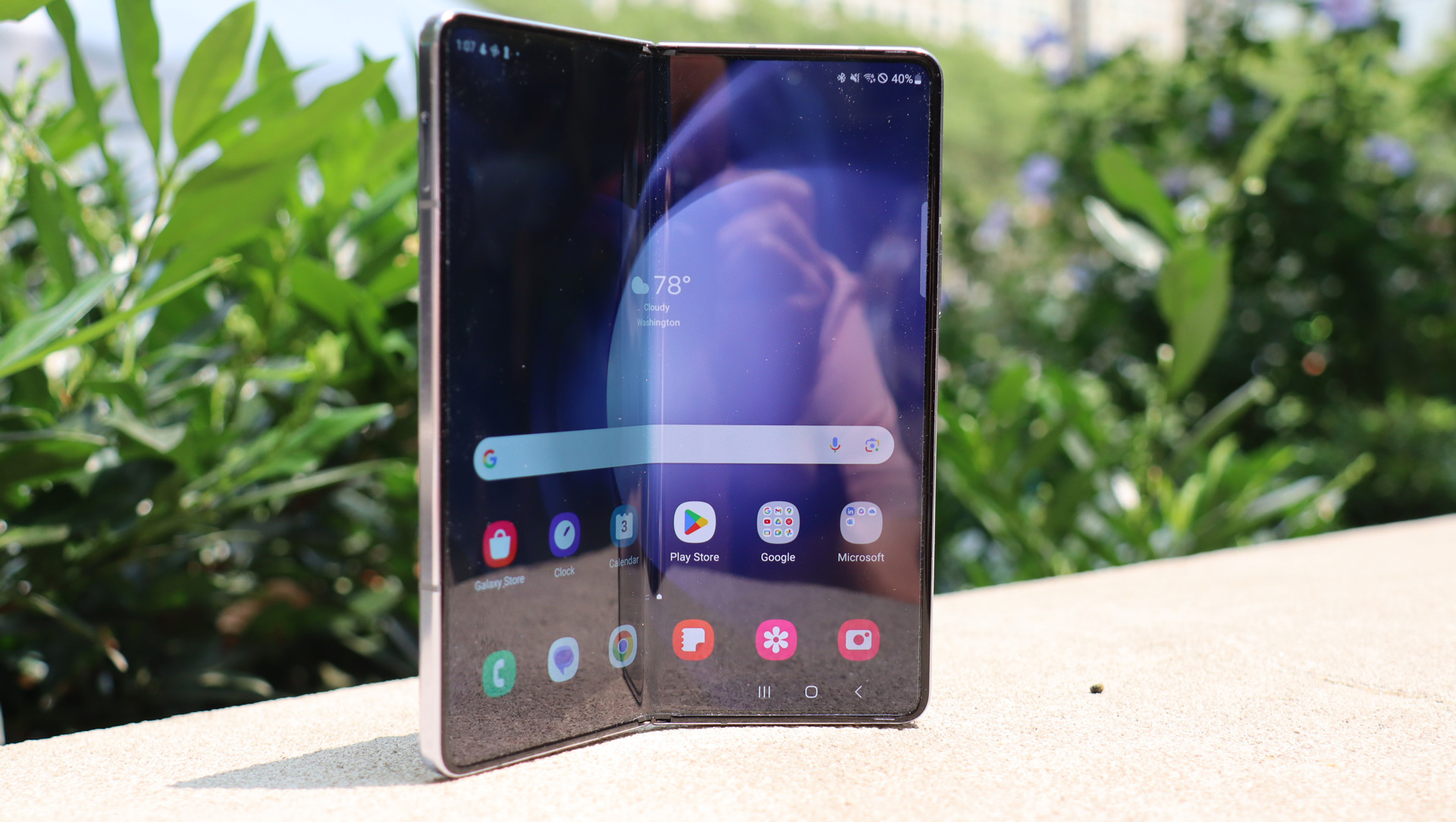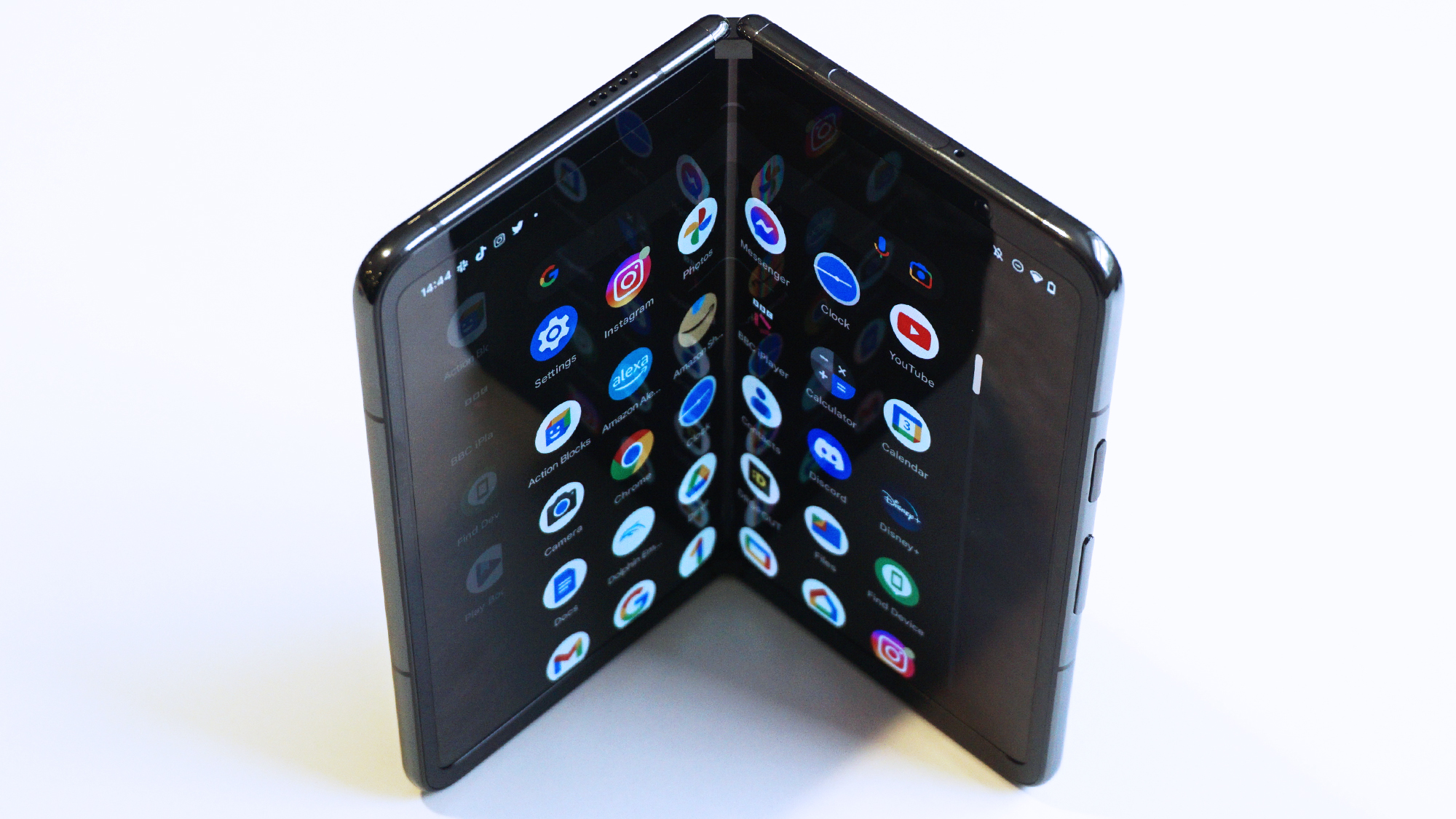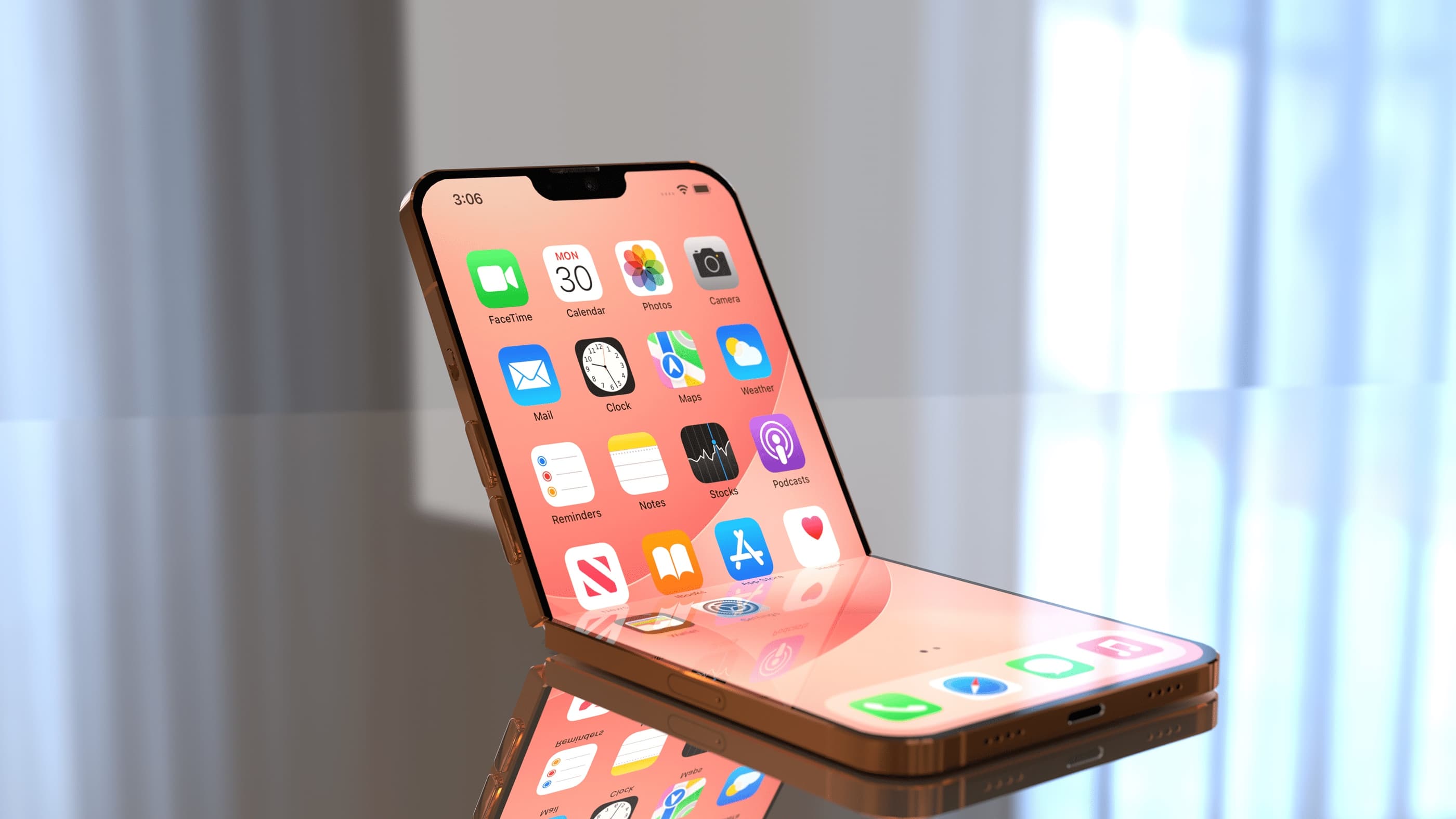
The assignment was simple: write about how 2024 will be 'The year of the foldable,' a breakthrough 12 months that will make the previous four or five years of foldable innovation look like a high-school dress rehearsal. The real show, the big foldable show, kicks off after the new year rings in.
Sure, I can do this... except for one niggling problem. 2024 will not be the foldable's breakthrough year. It cannot be without the participation of one major player: Apple.
If there's a standard-bearer for the foldable wave, it's Samsung, a company that has now released five generations of foldables with steadily increasing levels of confidence. I happen to be a huge fan of the Samsung Galaxy Z Fold 5 (even if I think every Samsung product name is too long). No longer visual and design oddities, Samsung's folding phones feature large external screens with big, flexible displays hidden inside, just waiting to be unfolded.
Aside from price, there are no caveats in the lineup. You get double the screen real estate of a regular phone, excellent cameras, Pen capability on the Z Fold, and even water resistance. Competitors like the Motorola Razr, Google Pixel Fold, and OnePlus Open continue to build on Samsung's original ideas with even larger external screens, thinner chassis, and sometimes better cameras. Not everyone matches the durability of Samsung's foldables, though.
After a decade of phone design and function sliding toward a valley of similarity, foldable phones represent an exciting category, and one of the last true areas of innovation left to handset makers.
A small market

However, if we're being honest here, not a lot of people are buying foldable phones. Samsung is the market leader, selling by one measure 80% of all foldable handsets; but that's a big piece of what is still a minuscule pie. The same report put the foldable market at 1% of the total smartphone market. Worse yet, much of Samsung's foldable phone sales appear to be happening on its home turf in South Korea. To be certain, when I traveled there last summer to meet with Samsung and witness the launch of the Z Fold 5 and Galaxy Z Flip 5, I did see quite a few foldables in the wild, often as I was riding on Korea's impressive mass transit system. I'd say three-quarters of all riders were using Samsung Phones, in general. In the US, you might flip that number to 80-90% of people I see on the train using an iPhone.
As it stands, companies like Google and OnePlus are not entering an existing foldable market; they're all trying to build it. There are a lot of great choices, designs, and features, but the bleeding edge of mobile technology will still cost you, and that may be hampering market penetration.
There is another factor, though. Without a folding Apple iPhone or iPhone Fold, the market may never mature, and turn the corner to become a true phone market. You might think I'm overweighting Apple's influence. After all, Apple is not the biggest phone manufacturer in the world.
The big, unfolding opportunity

According to Counterpoint Research, Samsung still holds a 4% margin over Apple, and Apple is just a tick above Oppo+ (the largest global smartphone share goes to a collection of manufacturers categorized as 'Others').
In theory, Samsung's global influence should drive foldable devices to widespread global acceptance if not eventual dominance, but Apple's influence is based on something more than numbers. It's a psychographic influence that starts with the US market, and then spreads as a sort of digital FOMO around the world.
If Apple introduced a folding iPhone in 2024, it would be the biggest smartphone news of the last 24 months, and the desire to simply touch one would inspire legions of Apple fans to line up outside glass-encased retail stores around the world.
I'm not claiming that Apple would necessarily do anything different or better than Samsung (though it's foldable would be different, and it might be better); but the very existence of an iPhone Fold would transform the foldable marketplace.
And 2024 will not be the year of the foldable, because all signs point to Apple not releasing its first folding iPhone in 2024.
Apple has other plans

A few years ago, industry prognosticator and savant Ming-Chi Kuo predicted that Apple could get into the folding space as early as 2024. However, Kuo soon revised his timeline to "2025 at the earliest."
There isn't even agreement on what kind of foldable we can expect from Apple. It might be an iPhone Fold, but it also might be a folding iPad mini or standard-sized iPad Fold.
When I asked longtime Apple watcher and Creative Strategies Chairman and analyst Tim Bajarin about the chances of Apple releasing a foldable phone 2024, he didn't mince words. "It is very low. Just not on their priority list," he wrote to me in an email, adding that, as I've also surmised, this is an unproven market. "For Apple to jump in the technology needs to get better and more durable and prove to deliver many years of service," he added.
In my estimation, Apple has already made its big bet for 2024. It won't be the year of the foldable for the Cupertino giant. Instead, 2024 will be the year of the Apple Vision Pro. Apple's mixed-reality headset will arrive in Apple stores for consumers to sample early next year, before finally going on sale sometime before the company's annual developer's conference (WWDC) in June.
Apple will spend the year pushing spatial computing, and leaving competitors to fight over the scraps of the foldable market.
None of this is to diminish Samsung's, Google's, Motorola's, or OnePlus's accomplishments. These are excellent folding phones that will probably grow the market by a few percentage points in 2024, but none of them will have a breakthrough year. The market is too busy waiting for Apple.







